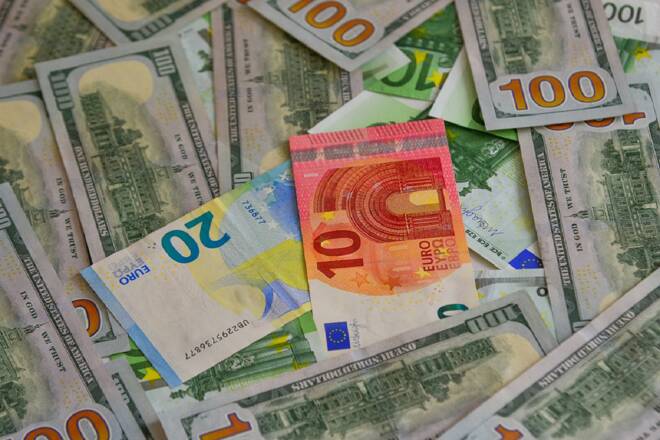Advertisement
Advertisement
EUR/USD Slides 0.9% As EU Agrees To Reduce Gas Usage, DXY Rises Above 107.0
By:
Concerns that the European energy crisis is quickly transforming into a recession weighed heavily on the euro on Tuesday.
Key Points
- Safe-haven currencies outperformed on Tuesday as recession/European gas rationing fears weighed on global macro sentiment.
- The DXY rallied back above the 107.0 level despite soft US Consumer Confidence figures.
- EUR/USD slumped 1.0% after EU energy ministers agreed to an emergency gas usage cut until next March.
Safe-haven FX Outperforms Amid Risk-Averse Global Macro Tone
Safe-haven currencies ruled the roost on Tuesday after several bearish developments weighed on US equity market sentiment, weighed on global yields and resulted in heightened global recession worries. The DXY pushed back into the 107.0s despite data on Tuesday showing that US Consumer Confidence has fallen for a third successive month in July, with safe-haven demand for the world’s reserve currency outweighing domestic economic concerns.
USD/JPY, meanwhile, was last trading roughly flat in the mid-136.0s, but yen bulls are eyeing further upside if global recession fears continue to rise and central bank tightening bets continue to be pared back on. Such developments would likely weigh heavily on yields (as has been the case in Europe on Tuesday), which could significantly boost the rate-sensitive yen.
Euro Battered as EU Agrees on Gas Usage Reduction Plan
EU energy ministers on Tuesday agreed on a somewhat watered-down plan to reduce their gas usage between now and next March amid fears of a Russian gas export embargo. Russia’s state-owned Gazprom has this week reduced gas flows to Germany via the Nord Stream 1 pipeline to just 20% of usual capacity and the EU is preparing for a total cut-off.
Gas rationing is likely to weigh heavily on the Eurozone’s energy-guzzling industrial sector, which plays particular importance within the economy of the Eurozone’s economic powerhouse Germany. The IMF and various banks downgraded their growth expectations for the Eurozone on Tuesday as a result.
Thus, it wasn’t surprising to see that the euro was the underperforming G10 currency, with the latest developments further raising the risk of a Eurozone recession this year. EUR/USD slid to fresh one-week lows in the low-1.01s.
A sharp drop in Eurozone bond yields as traders pare back on ECB tightening bets dampened the appeal of holding the low-yielding single currency. The German 10-year yield tumbled to fresh two-month lows under 1.0% and is currently on course for its largest monthly drop since 2012 of around 40 bps.
European money markets, meanwhile, now imply a 39 bps rate hike in September, down from expectations for a 50 bps rate hike as recently as last week. That is despite hawkish commentary from the likes of ECB President Christine Lagarde and fellow policymaker Martins Kazaks on Monday, who both teased at the possibility of another 50 bps move. Seemingly markets don’t believe that the ECB will be able to follow through with further large hikes as downside economic risks materialize.
Elsewhere, GBP/USD continued to pivot on either side of the 1.20 area on Tuesday, while the risk-sensitive Aussie, kiwi and loonie all fell between 0.2% to 0.5% on the day versus the buck. Aussie traders are bracing for the release of Q2 Consumer Price Inflation figure during the upcoming Asia Pacific session that could boost the outlook for RBA tightening if it surprises to the upside in a meaningful way.
About the Author
Joel Frankauthor
Joel Frank is an economics graduate from the University of Birmingham and has worked as a full-time financial market analyst since 2018. Joel specialises in the coverage of FX, equity, bond, commodity and crypto markets from both a fundamental and technical perspective.
Advertisement
